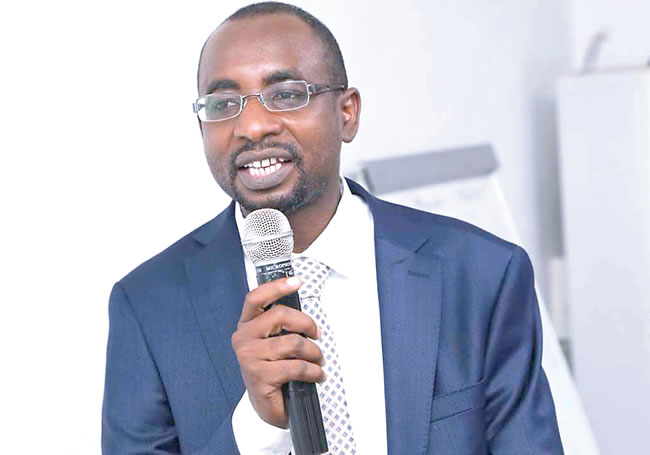Facing oil pollution with little government attention, people in the Niger Delta begin to replant mangroves
Growing up in Rivers State, Martha Agbani had the pleasure of living in a coastal community in the Ogoni region, where the vegetation seemed pristine.
But over the years, as oil spills from pipelines crisscrossing the Niger Delta poured crude into the waters, the mangroves began to disappear.
People like Ms. Agbani find life less meaningful without the presence of the mangroves which were home to fish, shellfish and other aquatic life that had not only fed the local population, but had been the heart of a robust trade for resident fishermen and traders.< /p>
A United Nations study published in 2011 found that it would take 25 to 30 years to remediate, restore and clean up Ogoniland.
Six years later, Ms. Agbani launched a regeneration effort that would help the area restore some of the vegetation that had been lost.
 Martha Agbani and a woman
Martha Agbani and a womanShe runs the center of Lokiaka Community Development, an advocacy supporting indigenous women farmers in maintaining the natural state of the environment and protecting green spaces.
She started to do research, visited institutions for capacity building and also engaged institutions with expertise in areas related to reforestation.
In 2018, Ms. Agbani visited several oil-polluted communities in the region such as Kpean, Kwawa, Baen, Kono, Bere, Gure and Bodo. However, Yaataah was more promising in accepting the idea of restoring the environment.
More than 50 oil wells are located in the Yorla oilfield, one of many in the Yaatah community, some of which are quite close to the homes of the rural settlements of Ken-Khana, all located in Ogoniland .

Mostly terrestrial, the oilfield has a sort of uneven regenerated vegetation, crowded with sparse grasses, shrubs and trees.
Because of the breadth of her vision, Ms. Agbani could not work alone. She assembled a group of indigenous women for this purpose; they would also be compensated. With female empowerment in mind, the composition of this team was one hundred percent female.
So far, one million trees have been replanted in the community. Ms. Agbani and her team are selling mangrove nurseries to companies including Shell which...

Growing up in Rivers State, Martha Agbani had the pleasure of living in a coastal community in the Ogoni region, where the vegetation seemed pristine.
But over the years, as oil spills from pipelines crisscrossing the Niger Delta poured crude into the waters, the mangroves began to disappear.
People like Ms. Agbani find life less meaningful without the presence of the mangroves which were home to fish, shellfish and other aquatic life that had not only fed the local population, but had been the heart of a robust trade for resident fishermen and traders.< /p>
A United Nations study published in 2011 found that it would take 25 to 30 years to remediate, restore and clean up Ogoniland.
Six years later, Ms. Agbani launched a regeneration effort that would help the area restore some of the vegetation that had been lost.
 Martha Agbani and a woman
Martha Agbani and a womanShe runs the center of Lokiaka Community Development, an advocacy supporting indigenous women farmers in maintaining the natural state of the environment and protecting green spaces.
She started to do research, visited institutions for capacity building and also engaged institutions with expertise in areas related to reforestation.
In 2018, Ms. Agbani visited several oil-polluted communities in the region such as Kpean, Kwawa, Baen, Kono, Bere, Gure and Bodo. However, Yaataah was more promising in accepting the idea of restoring the environment.
More than 50 oil wells are located in the Yorla oilfield, one of many in the Yaatah community, some of which are quite close to the homes of the rural settlements of Ken-Khana, all located in Ogoniland .

Mostly terrestrial, the oilfield has a sort of uneven regenerated vegetation, crowded with sparse grasses, shrubs and trees.
Because of the breadth of her vision, Ms. Agbani could not work alone. She assembled a group of indigenous women for this purpose; they would also be compensated. With female empowerment in mind, the composition of this team was one hundred percent female.
So far, one million trees have been replanted in the community. Ms. Agbani and her team are selling mangrove nurseries to companies including Shell which...
What's Your Reaction?






















